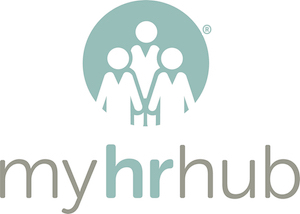
Did you know that menopausal women are the fastest-growing demographic in the British workforce? Additionally, almost a million women in the UK have reportedly left jobs as a result of menopausal symptoms.
In a UK-wide survey, the British Menopause Society found that 45% of women felt that menopausal symptoms had a negative impact on their work and 47% of those who needed to take a day off work due to menopause symptoms said they wouldn’t tell their employer the real reason they had to take time off.
Given that menopause mainly affects women in their late 40s and early 50s, this can lead to highly experienced women at the peak of their career and eligible for senior management leaving work. The loss of these highly skilled women will be felt in the productivity of their own companies, as well as the wider economy.
Menopause and perimenopause are not specifically protected under the 2010 Equality Act. However, if a worker is treated unfairly because of the menopause and perimenopause, this may amount to discrimination on the basis of their sex and/or a disability and/or their age.
How can employers support staff with the menopause?
For employers who wish to support staff going through the menopause, this can be done on a relatively minor scale without the need for significant upheaval. Simply creating a positive and open environment between an employer and someone affected by the menopause can help prevent them from:
- Losing confidence in their skills and abilities
- Feeling like they need to take time off work and hide the reasons for it
- Having increased mental health conditions such as stress, anxiety and depression
- Leaving their job
The Faculty of Occupational Health suggest that regular, informal check-ins between manager and employee may help facilitate conversations about changes in health, including menopause.
However, it is vital to remember that, unless an employee mentions it directly, it’s not appropriate to suggest that someone is experiencing menopause.
Some examples of supportive action that employers can take are:
- Providing a desk or office fan
- Allowing the affected employee to take more breaks
- Providing flexibility with dress codes or uniforms
- Providing a private area where the employee can rest for a while to help manage their symptoms
- Moving the employee’s desk close to a window that opens
- Being flexible (where possible) with start and finish times
- Allowing the employee to work from home where practical
- Changing certain duties in the employee’s role
- Allowing the employee to move to a more suitable role in the organisation
- Facilitating the employee going part-time if they desire
- Allowing the employee to switch to a job share

My HR Club ran a workshop in August discussing how menopause affects employers and how they can support employees going through it. My HR Club members can watch the recording and download the slides here (login required).
Not a My HR Club member? My HR Club is a subscription-based HR club offering a range of benefits including a monthly line-up of online training workshops, a portal of HR document templates, access to our list of ‘tried and trusted’ HR suppliers, and more. Find out more about My HR Club on our website.
View the Faculty of Occupational Health’s guide to menopause and the workplace here.


Recent Comments